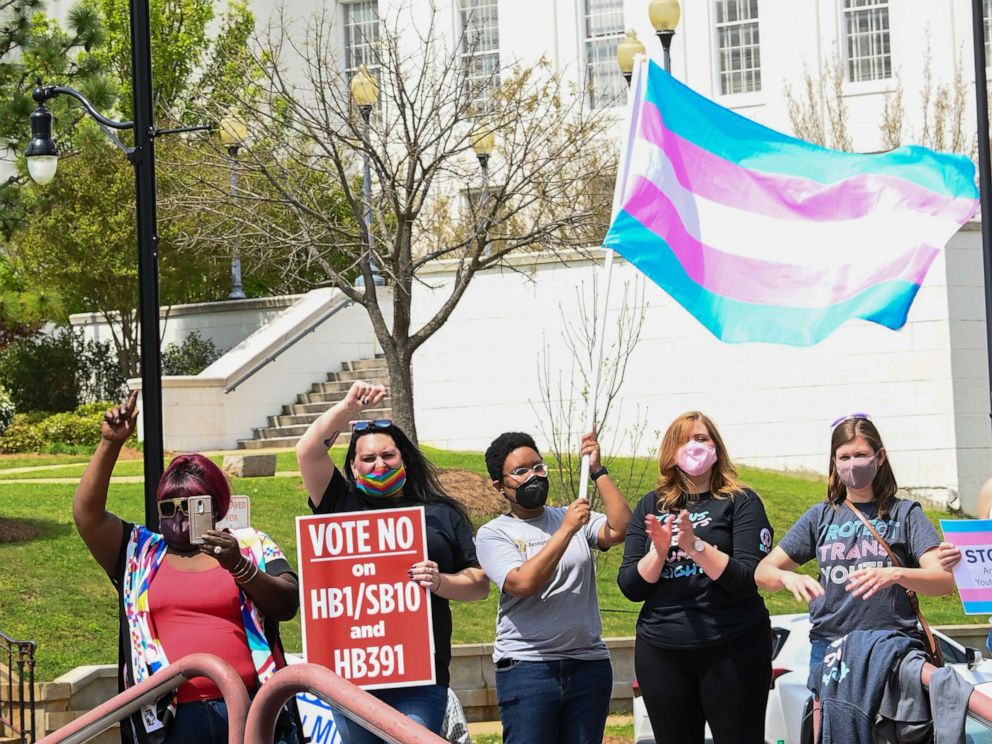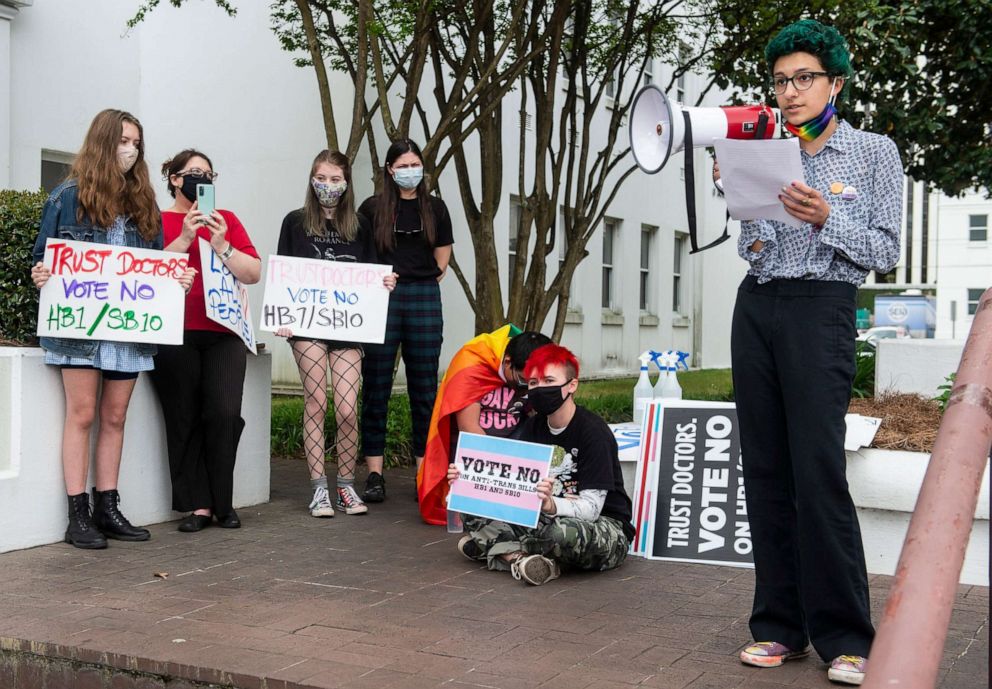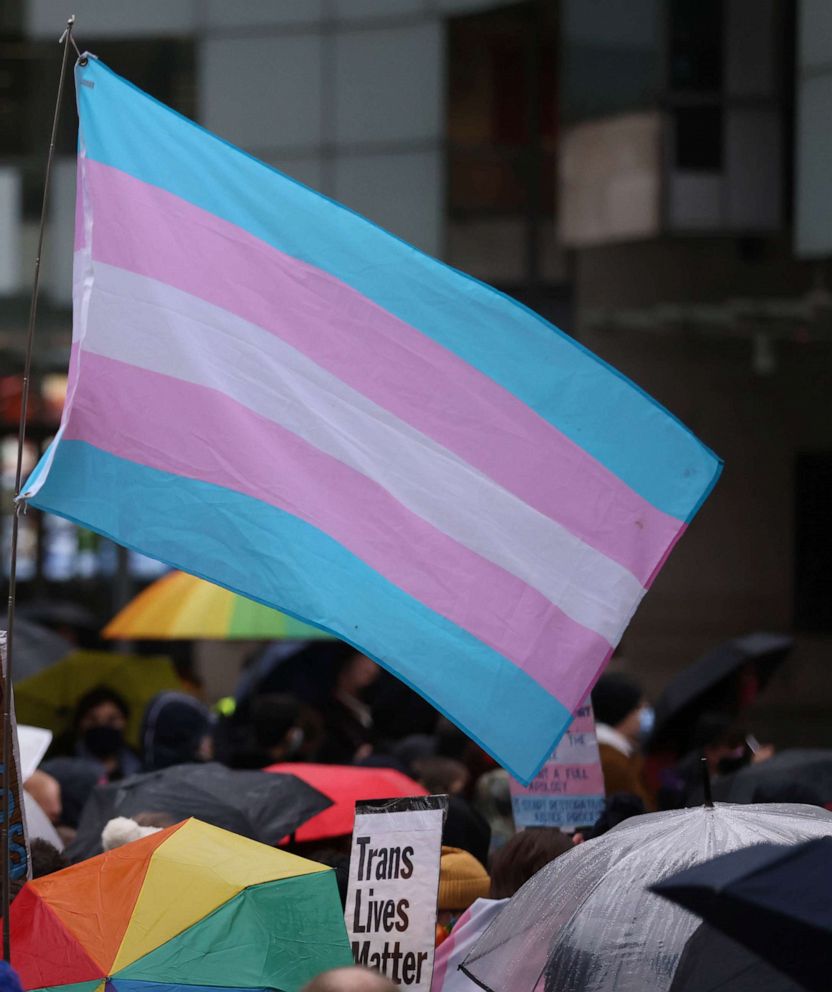Health care providers for trans people debunk new Alabama legislation's misinformation
The Vulnerable Child Protection Act is misinformation, some experts say.
Health care providers that serve the transgender community in Alabama are struggling to make sense of a new bill moving quickly through the state legislature.
The Vulnerable Child Protection Act would ban gender-affirming care for transgender youth in the state.
Pediatric endocrinologist Hussein Abdullatif, who provides gender-affirming care for trans youth, said the legislation leaves many questions: Will trans youth be able to continue seeing their physicians? Will they be able to receive their medications?
"I worry about my patients," Abdullatif told ABC News. "They already are showing a great deal of anxiety related to what's going to happen."
Abdullatif says it is not only his transgender patients' physical health but also their mental health that is of concern. He said he has seen firsthand the way discrimination and lack of care can affect his trans patients.
"I do know of a kid who already attempted three times suicide -- not because of law, of course, because they haven't passed it yet -- but because of resistance by the mother of the child to the idea of being transgender," he said.

The bill states that anyone who provides gender-affirming care, including puberty blockers, hormone therapy or physical gender-affirming surgeries to anyone under 19, could be convicted of a felony and face up to 10 years in prison and a $15,000 fine.
The bill's sponsor, Republican Sen. Shay Shelnutt, called gender-affirming health care, "child abuse."
"We don’t want parents to be abusing their children. We don’t want to make that an option, because that’s what it is, it’s child abuse. This is just to protect children," Shelnutt said on Feb. 23 on the state Senate floor.
Yet experts say the notion of gender-affirmation as child abuse as well as language used in the legislation -- for instance, the claim that people can experience "permanent sterility, that result from the use of puberty blockers, cross-sex hormones, and surgical procedures" are forms of misinformation.
Debunking myths about transgender health care and gender-affirmation
The bill refers to "minors" and "surgical procedures" but in Alabama, gender-affirming surgeries aren't allowed until a patient reaches the age of legal majority for medical decisions, which is 19.

"When lawmakers attempt to practice medicine with a life without a license, they realize quickly that there was a lot more they didn't understand than what they thought they did," said Morissa Ladinsky, an associate professor of pediatrics at the University of Alabama at Birmingham Department of Pediatrics.
The bill's language also makes claims about mental health and gender affirmation which some experts say are false.
"Individuals who undergo cross-sex cosmetic surgical procedures have been found to suffer from elevated mortality rates higher than the general population. They experience significantly higher rates of substance abuse, depression, and psychiatric hospitalizations," the legislation reads.
However, research from the Centers from Disease Control and Prevention found higher rates of substance abuse, depression and suicidal ideation were linked to stigma, discrimination and victimization experienced by this population.
Research shows that people who have gender-affirming surgery had significantly lower odds of psychological distress, tobacco smoking, and suicidal ideation compared with trans people with no history of gender-affirming surgery.
As for hormone therapy and puberty blockers, physicians say gender-affirming care comes after long discussions between parents and their children, as well as between families and their physicians.
Puberty blockers provide an individual and their family time to determine if a child's gender identity is long-lasting, according to the Mayo Clinic.
Trans youth may face stress and anxiety from puberty development, including breast or facial hair growth, that does not align with their gender identity. Puberty blockers can help offer relief from that stress, experts say.
If an adolescent child stops taking the treatment, puberty resumes.
"It's harmless and it's not something that locks you in a certain decision that you cannot leave," Abdullatif said.
Hormone therapy, which induces male or female physical changes, also helps address the needs of transgender teens in affirming their identity.

The legislation also makes the claim that puberty blockers can cause infertility or other health risks.
According to Ladinsky, these potential side effects only present real risks after puberty and are not a risk to youth taking puberty blockers.
Gender-affirming youth care is supported by several national medical organizations such as the American Medical Association, American Academy of Child and Adolescent Psychiatry, the American Academy of Pediatrics and the American Academy of Family Physicians.
"The worry is that we will have an epidemic of suicide because of a bill that calls itself the [Vulnerable Child Protection Act]," said Abdullatif.
Bills seen by advocates as anti-trans have also been proposed in past Alabama legislatures, as well as in states including Idaho and Arkansas. Arkansas is currently facing lawsuits against its bill that was passed into law last year despite the governor's veto, and bans gender-confirming treatments for transgender youth.
"This is a government overreach," Gov. Asa Hutchinson said at the news conference in April 2021.. "You are starting to let lawmakers interfere with health care and set a standard for legislation overriding health care. The state should not presume to jump into every ethical health decision."
Ladinsky says it keeps her up at night to think about the patients who are just now understanding their gender identities.
She said she worries youth will believe "my state has made the choice to erase me."




